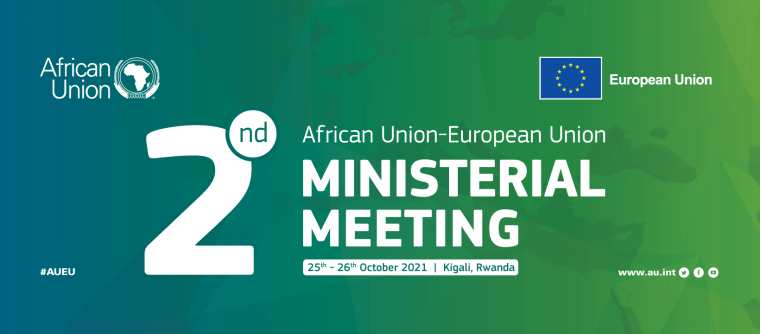AU and EU Foreign Ministers Reaffirm Need for Major Transformations in the Energy Sector

The Second African Union – European Union Foreign Affairs Ministerial Meeting in Kigali, Rwanda, on 25-26 October 2021 re-iterated the need for countries to do more towards a structural sustainable transformation that can enable efficient and competitive economies.
In a Joint Communiqué, the ministers conclude that all governments must work hard on comprehensive long-term strategies, increased green investments, scaled up climate adaptation measures and decisive actions in all sectors of the economy. Long-term and inclusive recovery, sustainable growth and job creation will only be possible if investments in education, health systems, basic infrastructures and access to sustainable energy is strengthened. The ministers also call for required measures with regards to the urgency and scale of climate change, pollution, and biodiversity loss.
Cooperation needed for renewed energy sector
To achieve the structural changes, the foreign ministers underline the need for major transformations in the energy sector. Changes include scaling up cooperation, especially on access to sustainable energy, increasing energy efficiency measures, developing and integrating regional energy markets and exploring the potential of innovative technologies such as renewable hydrogen.
The launch of the African Single Electricity Market (AfSEM) in June 2021 is welcomed as one such step towards harnessing the potential of renewable energy in Africa. The AU and EU foreign ministers also commit to deepen trade and investment ties between the continents in sustainable energy. As a priority action, the ministers have agreed to develop a strategic and coordinated approach on the energy partnership with the aim of launching an Africa-EU Green Energy Initiative that is envisioned to support the universal sustainable energy access ambition for Africa.
In the Join Communiqué, the ministers also recognised the need to support countries in implementing a fair energy transition, but simultaneously note that a fair transition in the African context means that the transformation of African economies towards more sustainable, resilient and climate-friendly must be carried out in phases and tailored to national circumstances.





